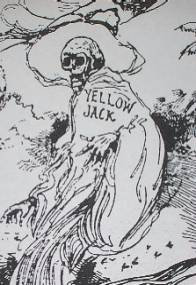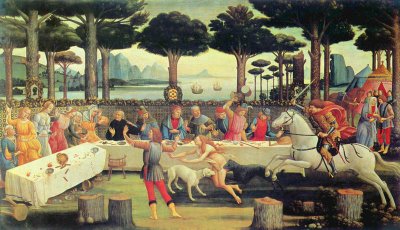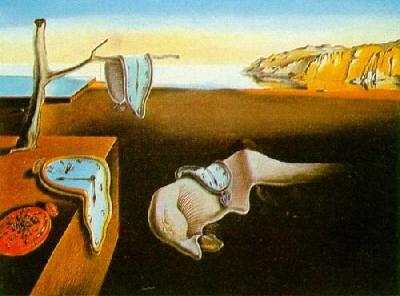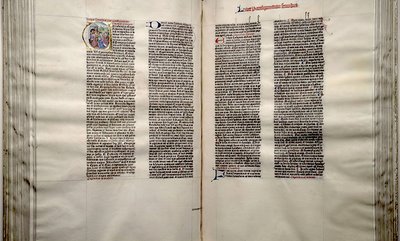Almost Back From Sickation & An historical note on plague for the Kid In The Attic
I’m almost, not quite, back to my regular schedule of working.
For weeks Ginny and I planned to take time off to set our house in order, rearrange furniture, work in the garden, and do things around the house.
We planned not to go off anywhere, a vacation, but to stay home and relax, what they now call a staycation.
Alas, that was not to be.
Turns out that Ginny got sick (not flu) the day before her time off work was to start and she’s been practically bedridden until yesterday when she was able to stay up for half the day.
She returned to work this morning.
So our time off turned out to be a sickacation.
My own plans for our time together got canceled and I’ve mostly played caregiver.
I’m a loving husband but I’m sick of her being sick.
This is not what I signed up for.
That “in sickness and in health” vow I though was just a pretty poetic phrase you say at a wedding before you can get on with the real business of marriage—which as all guys know is SEX!
Shows what I know about life.
Anyhow, remember back on April 7th when I anticipated my plans for this time off work?
I said, “I intend to sit under my awning by the fig tree, watch the birds feed, listen to the fountain, look over work that needs doing, think, pray, and recharge my batteries”.
Ha!
Shows what I know.
Well, I did a little of praying and meditating; and I discovered a valuable spiritual lesson.
While dabbling alone in my garden I can pray and meditate and worship and praise and be a godly man—but the second I resume contact with other people, all that goes out the window and it’s back to Grouchville for me.
Solitary religion, I can handle; testing it by adding someone else to the mix, I blow it.
Shame there isn’t anyplace in the Bible recommending a religion of one.
A HISTORICAL NOTE ON PLAGUE FOR THE KID IN THE ATTIC:
Last Friday for the first time I heard the news mention an outbreak of flue in Mexico.
The World Health Organization monitored it as a danger of becoming a pandemic.
In a week’s time the disease has spread geometrically with the number of cases and deaths increasing daily. It moved from Mexico to Texas, California and New York. It jumped to New Zealand, Scotland, and Germany.
This morning the first death in the United States was confirmed by the Centers For Disease Control. More deaths are expected.
A CDC spokesman said he’d never seen this strain of flu virus before; it combines elements of swine, avian and human influenza viruses. (Make me wonder if it’s not manufactured as a weapon of biological warfare???)
Anyhow, the United States is preparing for mass casualties.
This phenomena interests me on several levels.
For one thing, I’ve written about epidemic disease here in Jacksonville.
In 1888, Yellow Jack decimated this city. Here’s a contemporary newspaper editorial cartoon of the Yellow Jack plague hovering over Jacksonville:

Also, I’ve been researching materials to someday write a book about the 1666 London Black Death plague. Just recently workers in a city church yard uncovered a mass burial plague pit:

So many people died so fast that they could not be buried individually but their bodies were quickly thrown into such pits every night.
Looks uncomfortable.
But of course, these people will not stay dead.
Remember Easter?
Jesus is declared to be the Son of God by His resurrection from the grave.
And He said, “Verily, verily, I say unto you, He that heareth my word, and believeth on Him that sent me, hath everlasting life, and shall not come into condemnation; but is passed from death unto life.
“Verily, verily, I say unto you, The hour is coming, and now is, when the dead shall hear the voice of the Son of God: and they that hear shall live.
“For as the Father hath life in himself; so hath he given to the Son to have life in himself; And hath given him authority to execute judgment also, because He is the Son of man.
“Marvel not at this: for the hour is coming, in the which all that are in the graves shall hear His voice, And shall come forth—they that have done good, unto the resurrection of life; and they that have done evil, unto the resurrection of damnation”.
Won’t it be a hoot when all those people in the plague pit rise laughing and stretching and slapping each other on the back, dancing around, and catching up on the news?
Talk about a plague party!
Bet you’ve never seen such a happy crowd.
And it will happen all over.
Here in Jacksonville, such a mass burial plague pit from the Yellow Jack epidemic lies under the pavement beneath a Northside shopping center parking lot. No one knows for sure how many people ended up buried at that site.
When I worked at Evergreen Cemetery I noticed one section where headstones all bore the same family names. On closer observation, I saw that dozens of family members all died within a few days of each other during the 1918 Spanish Lady epidemic.
As I recall, the first plagues mentioned in the Bible, were the plagues brought on Egypt by Pharaoh not obeying God.
But Exodus also mentions plagues suffered by God’s people when they disobeyed.
Oddly enough, once when King David sinned, God gave him a choice between three punishments: famine, enemy invasion, or plague.
David could not make a choice; he said, “I am in a great strait: let me fall now into the hand of the LORD; for very great are his mercies”.
As the most merciful judgment and punishment under the circumstances, God sent a plague.
“And David lifted up his eyes, and saw the angel of the Lord stand between the earth and the heaven, having a drawn sword in his hand stretched out over Jerusalem. Then David and the elders of Israel, who were clothed in sackcloth, fell upon their faces”.
A terrible, terrible thing!
Eventually “The Lord commanded the angel; and he put up his sword again into the sheath thereof”.
The punishment was over but things were never again the same:
“David could not go before the altar to inquire of God: for he was afraid because of the sword of the angel of the Lord”.
A strange, pathetic, situation.
But, I wonder, if plague can be seen as a punishment of God, then why don’t just wicked people die, why do babies, children good people die as well as the folks who prepare for epidemic by holding an orgy like a hurricane party?
Remember Boccaccio’s Decameron?

It’s the nature of disaster to sweep away the good, the bad, the beautiful, and the ugly. Fires burn bars and churches, floods flood hospitals and brothels. Earthquakes, tornadoes, eruptions, drunk drivers, plagues—none discriminate among victims.
Does that mean all hope is gone?
That God hates our guts.
That there is no mercy?
Certainly not.
When King David pondered the repercussions of the rape of his daughter, and one son’s murder by another of his sons, a wise woman comforted him saying:
“For we must all needs die, and we are as water spilt on the ground, which cannot be gathered up again. Neither doth God respect any person—yet He doth devise means, that His banished be not expelled from Him”.
Yes, it all comes down to this—He doth devise means that we, His banished, are never expelled from Him no matter what—come hell or high water
So take prudent steps.
Wash your hands.
Buy groceries.
Avoid crowds.
Gas the car.
Do the same things you do to get ready for hurricane season every year.
Plagues come and go, waters rise and fall, winds rage and cease, the wicked flourish and are no more to be found—but the love of God endures no mater what.
Nothing has changed.
Live each day as though you will live for ever and as though You will die tonight. That’s what we should have been doing all along.
Now that Ginny is over her bout with illness (not flu) we are all set to live or die, to live on to retire or to meet earthly end in a mass burial plague pit.
Of course I have my preferences.
I hope to finish another book beforehand, and there’s some more work to be done in the garden, but I’m happy whatever.

Please, visit my website for more www.cowart.info and feel free to look over and buy one of my books www.bluefishbooks.info
posted by John Cowart @ 12:03 PM
Your comments are welcome: 2 comments








